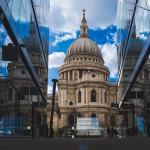On May 15, 1957, evangelist Billy Graham preached for the first time at Madison Square Garden to a crowd of over 18,000 people. It was the beginning of his New York “crusade.” He would also preach inside Yankee Stadium, filling it as well. He would end up preaching in New York clear into September.
We might say on that date, what we know as modern (meaning, recent at least) American Evangelicalism was born.
Why that date and event? Prior to his coming to New York, Graham had accepted the sponsorship of the local Protestant Council of Churches, which to fundamentalists at the time was like accepting the sponsorship of Rome or the local council of wizards and warlocks.
Let’s just say, it didn’t go over well. Adding insult to injury, the year prior, Graham, along with Carl F. Henry, had established Christianity Today, which was a clear attempt to break with the parochialism and anti-intellectualism of fundamentalism.
Call fundamentalism whatever you wish, but blind to the obvious slight and clear cold-shoulder—it is not. They received the message: We don’t want to be associated with you—the image is bad. Got it. Think of it this way: Evangelicalism was the only kid from an Appalachian family that went to college and was now, rightly or wrongly, a bit embarrassed of their family and history.
I believe what we know of today and are familiar with as to the blanket designation “evangelicalism” stems from those two pivotal events. We can rightly point to those two events as the “birth” of recent evangelicalism as we know it.
Here’s the problem though. If one would have sat Billy Graham down with your average fundamentalist and asked them both questions about what they believed, I doubt there would have been much difference in what either articulated. There may have been differences of semantics and sophistication, but I doubt any of substance.
While the “new” evangelicals or “neo” evangelicals wanted to break away from fundamentalism, it was due more to their image and sensibility than it was their theology or understanding of Christianity. For decades no doubt, many of these so-called “evangelicals” were still fundamentalists at heart, especially those in the pews.
I don’t know if evangelicals thought either most fundamentalists would eventually join them, or simply fade into history, but certainly one of those didn’t happen. In fact, if anything, it would seem too many evangelicals have returned to their fundamentalist roots.
It may have turned out differently if evangelicals could have developed a different trajectory and emphasis from fundamentalists when it came to political involvement, but most of them were on board with Jerry Falwell’s (a fundamentalist) Moral Majority in the 1980s and similar efforts by those much more aligned with fundamentalism than not.
What evangelicals were trying to get away from (“Hey, we’re not like those kooky fundamentalists…”) has all but backfired. According to Barna research done in 2019, only 3 in 10 Americans hold a positive view of evangelicals. I would hazard to guess that number hasn’t improved over the last couple of years.
Further, their clear alignment with Trump and susceptibility to cults like QAnon and conspiracy theories in general, leaves them little room to tell us who the “kooky” ones are.
The fundamentalists are getting the last laugh here, even if they may not get the joke. While evangelicals wanted a different image, while they didn’t want to be associated too closely with their very near kin, they remained theologically tied to their root family. Eventually, that same underlying theology led them to the same perils and ills fundamentalists experienced in the 1920s.
Yes, I know, the death (as I’ve mentioned before) of evangelicalism has been foretold (wrongly) many times. And yes, “death” is too strong a word. Maybe irrelevant is better. I’m being a bit dramatic here and no doubt writing out of my own wishful thinking; obviously, elements of that tradition will no doubt survive and press on.
However, it may be something metaphorically along the lines of the Japanese soldiers found hiding even decades after WWII ended. Many didn’t know the war had ended or didn’t believe there had been a formal surrender. The world had moved on and they were left (ironic) behind.
In my opinion, evangelicals never made a deep enough break with fundamentalist theology, especially their eschatology. This allowed deep toxic inroads into their congregations of conspiracy theories, anti-science views, and a black-and-white political lens allowing them to demonize their supposed enemies.
One of the results: The Insurrection on January 6th.
Pastor/theologian Brian Zahnd recently commented on social media that in his view, at this point, American evangelicalism is a failed experiment. I agree. And I think that failure culminated on January 6th, 2021 and might as well be noted as the date of death. What lives on now are the ghosts really, the rattling skeletons, of memories, and battles, long lost and forgotten by the living.
May 15, 1957—January 6, 2021. RIP.
I have a Patreon—please consider supporting my writing.













